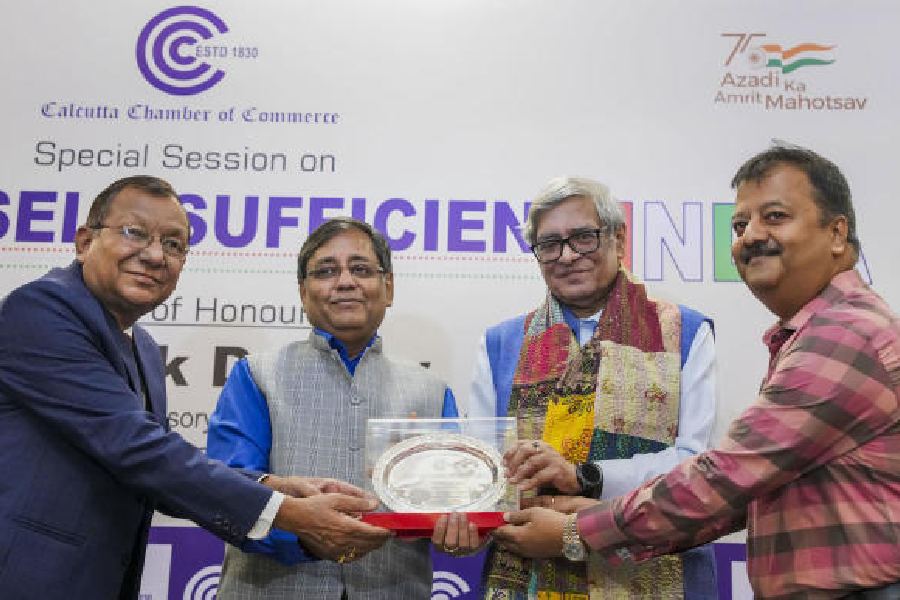Economist Bibek Debroy, chairman of the Prime Minister’s Economic Advisory Council, has spooked industry by making a strong pitch for major direct tax reforms after next year’s general elections that will involve the complete withdrawal of all tax exemptions.
Speaking at an event organised by the Calcutta Chamber of Commerce on Tuesday, Debroy said the direct tax reforms must involve the complete elimination of all exemptions which in his view increase compliance costs and leads to litigation.
“There are two channels available now both on the corporate tax side and the personal income tax side of either opting for a simpler one with fewer exemptions or one with exemptions.”
“On the corporate side, there have not been too many takers for the exemption-less regime. This means somewhere down the line, the direct tax reform must involve a more substantive removal of exemptions which of course now can only happen after elections,” Debroy said.
“Whether we like it or not, either we must be prepared to pay more taxes or the expectation cannot be that we will make airports like in the US or railway stations like in China,” Debroy said.
In 2009, then finance minister P. Chidambaram had sparked a storm with a similar proposal and went on to introduce a draft bill in 2010 which didn’t get passed.
On the indirect tax side, Debroy said the government is losing revenue because it is unable to reach a single rate of GST.
“The ideal GST is one that has a single rate and it was meant to be revenue neutral. According to calculations by the finance ministry when the GST was introduced, it was said that to be revenue-neutral, the average rate of GST must be at least 17 per cent. But the average GST rate today is 11.4 per cent,” he said.
Debroy recently stirred controversy by floating a trial balloon when he suggested that it was time to draw up a new Constitution for India. The economic advisory council however has clarified that the observations were in his personal capacity and do not reflect the council’s or government’s views.











